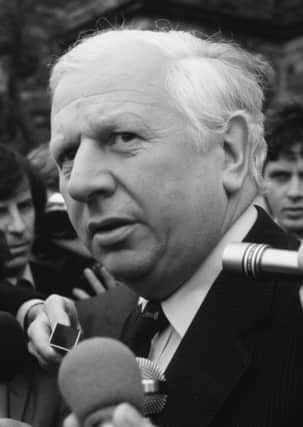Whitelaw believed a quarter of Sinn Fein votes were stolen


Newly-released Cabinet papers show his memo noting that the SDLP were particularly concerned about the matter. The former Secretary of State for Northern Ireland was writing in his capacity as Lord President of the Privy Council on September 5, 1983. He was also Margaret Thatcher’s Deputy and had just stood down as Home Secretary.
He notified the Cabinet that the Secretary of State James Prior wanted legislation brought in to curb what he believed was endemic vote-stealing.
Advertisement
Hide AdAdvertisement
Hide Ad“The scale of which it is currently practised by Sinn Féin is of an entirely different order from that, which has taken place previously,” he wrote. “About 25 per cent of Sinn Féin’s vote at the General Election was probably impersonated and all the other political parties in Northern Ireland, especially the SDLP, consider that action should now be taken.”
Mr Prior wanted a Bill passed in time for EU elections in June 1984. Mr Whitelaw explained: “He considers that Sinn Féin, who obtained 43 per cent of the nationalist vote in the General Election, have a good chance of overtaking the SDLP in June 1984 unless action against personation is taken, and that if Sinn Féin obtain more than 50 per cent of the nationalist vote the constitutional nationalists in Northern Ireland could be destroyed politically.”
Fears were expressed that the rest of the world would think most nationalists supported violence and terrorism. Mr Prior wanted all voters to present at polling stations with either birth certificates or drivers’ licences; wanted all voters marked with a substance only visible by ultra-violet light to prevent personation; and he wanted postal voting banned if there was a recent change of address. Mr Whitelaw said the Home and Social Affairs Committee had doubts.